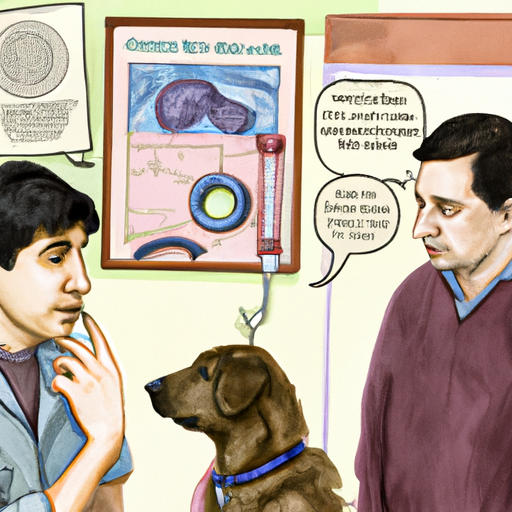Understanding Your Dog’s Physical Changes
As a caregiver for your dog, it’s natural to be concerned when you notice changes in their physical appearance. One such change that might cause alarm is a redness or inflammation in your dog’s penis. This is often a sign of irritation, infection, or other health concerns.
Possible Causes of Redness
While it’s important to consult with a vet for a proper diagnosis, there are several common possible causes:
-
Balanoposthitis: This is an inflammation of the penis and prepuce, often caused by bacterial or fungal infections. Symptoms can include redness, swelling, and abnormal discharge.
-
Canine STDs: Dogs can also contract sexually transmitted diseases, though this is less common.
-
Allergies or irritants: Just like humans, dogs can have allergic reactions to certain substances, which could cause inflammation.
-
Injury: Physical trauma can cause redness and swelling.
What to Look for
To identify the cause, consider the following:
- Is there any discharge, and if so, what is its color and consistency?
- Does your dog seem to be in pain?
- Have there been any changes in your dog’s behavior or diet?
- Have they been in contact with other dogs recently?
| Questions To Ask | Possible Reasons |
|---|---|
| Is there discharge? | Infection, STDs |
| Is there pain? | Injury, infection |
| Behavior changes? | Allergies, discomfort |
| Recent contact with other dogs? | STDs, injuries |
When to See a Vet
While some redness may be normal and resolve on its own, you should always consult with a vet if you’re unsure or if symptoms persist. Here are some signs that it’s time to see a vet:
- The redness doesn’t improve or worsens over time
- Your dog seems to be in pain
- There is a persistent, abnormal discharge
- Your dog has difficulty urinating
Frequently Asked Questions (FAQs)
Q: Can I treat my dog’s red penis at home?
A: While some cases may resolve on their own, it’s always best to consult with a vet to avoid complications.
Q: How can I prevent this from happening again?
A: Regular grooming, a healthy diet, and regular vet check-ups can help keep your dog healthy.
Q: Is it contagious?
A: Depending on the cause, it could be. Always separate infected dogs from others until a vet gives the all-clear.
Remember, your dog’s health is paramount. As a caregiver, you’re their first line of defense. Keep an eye out, and don’t hesitate to seek professional help if needed.



